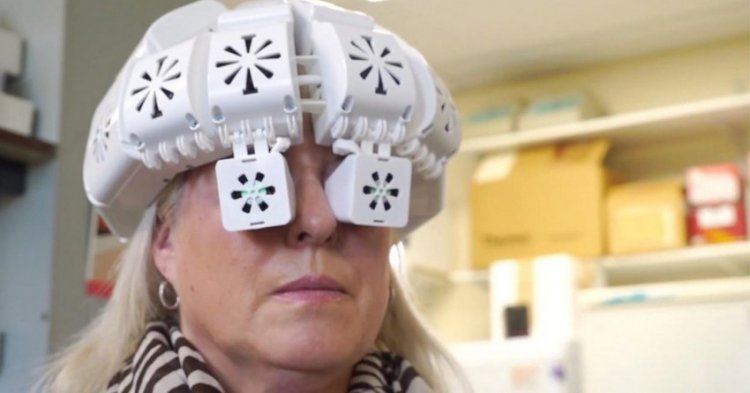This helmet could cure the incurable: Infrared rays against dementia
The helmet could also be useful for other disorders, such as Parkinson's disease, traumatic brain injury, or motor neuron disease.

A helmet that stuns your brain with infrared light could help treat dementia, a study by scientists from the University of Durham has shown. Namely, the mentioned scientists have developed a helmet that emits light into the brain directly through the skull.
Testing of the device showed that wearing a helmet twice a day for six minutes improved memory, motor functions, and brain processing skills in healthy adults. Scientists claim that if the results were repeated in people with dementia, the helmet could "change the game" in the fight against dementia, as well as an incurable disease that affects about 850,000 Britons. The £ 7,250 helmet works on a process called “photo-biomodulation” during which pulses of infrared light are directed deep into the brain. The PBM-T helmet, developed by Maculume, emits infrared light from 14 fan-cooled LED light arrays.
The device was designed by Dr. Gordon Dougal, a general practitioner in Durham County, who worked with scientists to examine the so-called “transcranial photobiomodulation therapies” (PBM-T).
- Much more research is needed to fully understand the mechanism of the helmet. Studies have shown that infrared light wavelengths help to ‘reverse’ nerve cell damage in patients with dementia. The treatment boosts the mitochondria that give the cells energy, which stimulates the brain to activate immune cells that remove toxic proteins associated with dementia, says Dr. Dougal.
Researchers believe that the therapy also increases nitric oxide levels and therefore improves blood flow to the brain, making sure more oxygen reaches the brain cells. They hope the helmet could be useful for other disorders as well, such as Parkinson’s disease, traumatic brain injury, or motor neuron disease. The helmet is put on very lightly, which means that the therapy can also be carried out at home.
Lead researcher Dr. Paul Chazot, who spent 20 years studying infrared wavelengths to treat dementia, said: "The helmet has been shown to improve and enhance memory for healthy people after their brains are exposed to specific influences."
- Although this is one of the first such studies, it is obvious that infrared radiation therapy will greatly contribute to the treatment of dementia in the future - concludes Chazot. The research was published in the journal Photobiomodulation, Photomedicine, and Laser Surgery.
By: Amber V. - Gossip Whispers




























